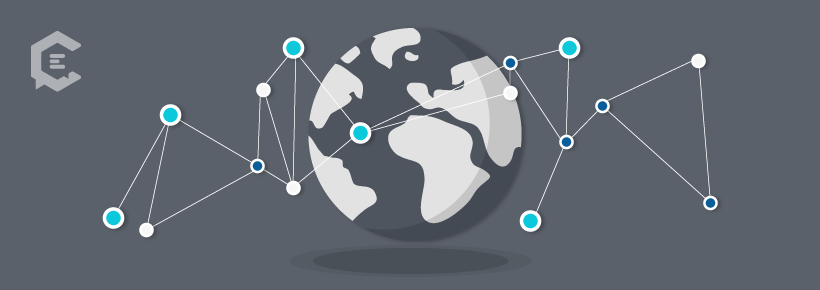Simultaneously intangible and highly complex, the IT and services space is beyond most writers’ grasp — which is why those with sufficient understanding to tackle the subject matter clearly and accurately can command six figure incomes.
Here’s the first tip: This niche encompasses concepts that most of us think about or benefit from every day… such as “the cloud,” where your music and photos collaborative work projects live… such as the invisible barriers that safeguard your personal information and credit card details… such as allowing you to pay small businesses with your credit card if you don’t have cash.
In the professional world, this falls into different buckets: information security, cloud computing, mobile apps for business. And that’s just the tip of the IT iceberg. Here we chat with Karen Bannan, an expert who found her tech niche in youth and became a technology writer back when PCs were covered in print. Now a tech writer who works on the editorial and marketing sides, she covers everything from software development best practices to the various potential uses of blockchain technology.
Writing for the connected world of technology
Describe your category of expertise and what topics it encompasses.
I write about all aspects of technology — security, the cloud, Internet of Things, cryptocurrency, medtech, consumer tech, mobile, martech, hardware, software. Technology is interesting in that everything is connected. You have to know a little about everything in order to write about a single topic. For instance, you can’t write about the cloud without delving into security, connectivity, personal computing, mobile devices, virtualization, and DevOps.
When you tell people you’re a writer and they dig for specifics and get the above answer, does it surprise them?
Yes, and it always has, especially when I meet people in person. I’ve been told I don’t “look” like a tech writer. (Like there is a tech writer look!)
How did you get to this place of expertise? Did you start in a different type of writing, or did you start elsewhere in the tech world?
I have been messing around with computers since I got my first one at 16. I was even online before there was an online. We called into a 12-node BBS and played text-based role playing games.
Then, in college, I started working at a small technology trade. As the youngest member of the staff I was charged with handling their Prodigy and AOL presences. I was also writing about all things computer as they related to the retail world. From there, I worked at another trade that focused on everything related to the web and connectivity. My beats were cable and satellite connectivity. Soon after, I was hired by PCMagazine as a staff writer. I was on the First Looks team, writing two reviews a day for PCMag online and writing for the magazine, too. I got to work in the One Park Ave.-based PCMag labs with crazy-smart people who were generous with their time and talents.
I learned about networking and more esoteric topics from those men in the labs. (At the time it was mostly all men.) I got to attend CES, Comdex, and Internet World conferences. Every day at work was like being at an elite tech school. Microsoft, Oracle, Dell, IBM — they came in and sat with us and we were able to ask any questions we wanted. It was truly amazing.
Looking at that as your training ground, how and when did you broaden your horizons to become a content expert for many companies?
ZDNet is really wonderful about promoting from within, so I soon moved on to eWeek, where I covered workstations, servers, and storage. I was working out of the Medford, Mass., office for one week out of the month, which was hard since I was going to New York University for my master’s in magazine journalism. I left that job assuming I would go back on staff once I completed the degree. That didn’t happen.
Instead, I was under monthly contract with Internet World magazine, wrote my own tech column for BusinessWeekOnline, wrote nearly weekly for the New York Times (“Circuits” section) and Wall Street Journal “(Small Business Breakaway” section), and broke into women’s magazines, writing about tech for a more consumer audience. As a freelancer, it was okay that most of these gigs overlapped to some extent. In tech, the more you write, the more people know you, and the more you work.
Along the way I had a five-year stint as a contract executive editor for a custom pub for CA Technologies, a nine-year gig writing about martech for Crain’s BtoB, a two-year writing role for a major tech vendor, a two-year stint as an editor for a storage company, and a year-long project for an e-commerce platform. I learned something new every day working with those companies!
For people who might be looking to move to martech since it’s a more lucrative and dynamic field than elsewhere in writing — do you think bootcamp-style courses or online learning can help?
I have never taken a class like that, so I can’t say one way or the other. I will say that most people are very generous with their time. Go into any training or learning opportunity willing to say you don’t know how something works and you will come away with new understanding. Don’t try and fake it, because you will get into trouble. Plus, there’s no need to fake anything since people in the tech industry want to educate you. Vendors especially are thrilled to educate journalists and writers. If you read analyst blogs or join LinkedIn groups, you’re going to learn a lot. YouTube has incredible tutorials. White papers, which are typically free, provide a wealth of knowledge. If you want to learn about something, there are many ways to become immersed in a topic.
What do you think of the foofaraw around blockchain?
I think it’s really exciting! I’ve written stories about a variety of ways people are using blockchain. The possibilities are endless. Just looking at, for instance, how we as healthcare consumers can benefit from blockchain was eye-opening.
Using blockchain as an example of something that simmered for years and then became wildly trendy — does that affect your business at all?
It’s been a natural evolution of my coverage areas. Tech never stands still. There’s always something new to learn about, and my clients and editors know I’m already in there reading about it.
What’s the most difficult/complex sub-category to write about?
Easy. DevOps! software development is its own language (literally — multiple languages). I can write about best practices and the business side of DevOps but I would never try and write stories about coding.
What’s the most fun sub-category for you to write about and why?
I love writing about security! It’s so exciting, and it encompasses so many different topics. Yes, the technology part is important, but since the human factor is such a significant component it just makes it so fascinating. I have written white papers, webinar scripts, ebooks, articles, blog posts, and infographics about security. I’ve looked at it from every angle including consumer, b2b, public sector, educational, and enterprise security. It never gets old and I love talking about it. I also love writing about edtech.
What is the process for working with a graphic designer or other artist?
Since I work remotely I had to learn to write very specific direction for the art folks. I also made sure I have pro versions of the software they are using so I can help proof things on pages. The process really starts with the client, though. The client should be willing to give us whatever we need so what we create reflects the brand. I am currently working on a slide deck for a client based on the script I wrote. They said they loved my script and I could proceed to the slides, but I asked them to send me their approved fonts, colors, and style guide. Having all that made it much easier for me and the art director.
Do clients in your space have a difficult time explaining what their company or product does? Or is it more an issue of, they have the words, but those don’t make sense to a layman?
It really depends on the company. I work with a lot of large brands, and most of them know exactly what they want to say and how they want to say it. Startups might have a little more trouble explaining, but they are typically so passionate about what they are doing they will spend the time to brainstorm with me and the other editorial people on a project. Honestly, if a company can’t explain their product or service it’s a red flag. Talk to me and get as in-the-weeds as you want, but if you can’t tell me what you do, I am not going to be able to communicate with your intended recipients.
How much of your business is writing long-form text pieces vs. other formats — i.e. explainer video scripts, presentations, ad copy?
This month I wrote three features, three blog posts, an ebook, and a white paper. I also moderated seven webinars and wrote a webinar script. It depends on the month, really. I don’t really write ad copy. Infographics, case studies, and blog posts — yes.
Do you work in social media content at all? What is the trickiest part of that?
I do write social posts for my clients. The trickiest part is getting them to see that it’s important for them to take social seriously. Everyone says they “do social” but not too many are doing it right. They need to get in there and start the conversations so they don’t have to be reactive. My biggest problem is usually a lack of supporting collateral. Give me something to tweet out, share, or post that isn’t pure sales collateral. Show people why they should care!
Most of us look at any brief related to IT and services and have an internal panic moment of “I don’t even know what those words mean.” Do you still have those moments, since new things are being invented all the time?
No, not yet. Take IoT — it might sound difficult to understand but when you break it down it’s networking, security, mobile devices, consumer electronics, artificial intelligence — all the things I already understand and have written about.







